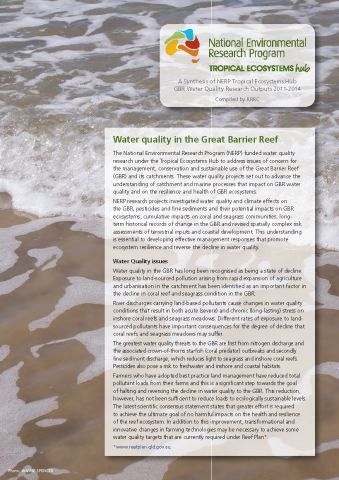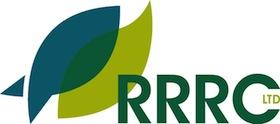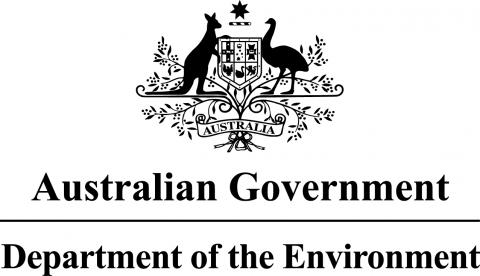Resources
 Jon Brodie (JCU), Jane Waterhouse, Will Higham, Eric Wolanski, Caroline Petus, Matt Brodbeck, John Rainbird, Frank Loban, Jo Johnson, Vic McGrath; Torres Strait Water Quality Hazard Assessment; Wednesday 8th May 2013.
Jon Brodie (JCU), Jane Waterhouse, Will Higham, Eric Wolanski, Caroline Petus, Matt Brodbeck, John Rainbird, Frank Loban, Jo Johnson, Vic McGrath; Torres Strait Water Quality Hazard Assessment; Wednesday 8th May 2013.
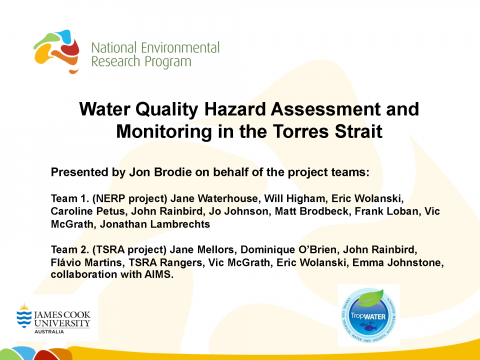 Jon Brodie (JCU); Water quality hazard assessment and monitoring in the Torres Strait; 5th November 2014.
Jon Brodie (JCU); Water quality hazard assessment and monitoring in the Torres Strait; 5th November 2014.
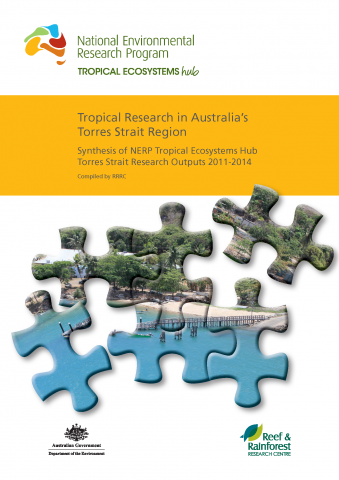 Johnson, J.E., Marsh, H., Hamann, M., Duke, N., Burrows, D., Bainbridge, S., Sweatman, H., Brodie, J., Bohensky, E., Butler, J., Laurance, S. (2015) Tropical Research in Australia’s Torres Strait region.
Johnson, J.E., Marsh, H., Hamann, M., Duke, N., Burrows, D., Bainbridge, S., Sweatman, H., Brodie, J., Bohensky, E., Butler, J., Laurance, S. (2015) Tropical Research in Australia’s Torres Strait region.
Having locals identify environmental research needs for their own community is a key step to ensuring that research is relevant, appropriate and desirable for communities. Communities of the Torres Strait are no exception to this and three island communities in particular are the focus of a research project funded by the Australian Government’s Marine and Tropical Sciences Research Facility (MTSRF) Transition Program. This factsheet summarises the results of a study on environmental research needs in a number of Torres Strait communities, which also involved staff of the Torres Strait Regional Authority (TSRA) Land and Sea Management Unit (LSMU). The core aim of this project was to attempt to ensure that knowledge generated from future applied research arrangements is appropriate and useful for end-users throughout the Torres Strait. These end-users for future research include government agencies such as the TSRA, leaders and representatives (such as island councillors, island managers and Prescribed Body Corporate members), elders, and locals living in the communities where research is being conducted.
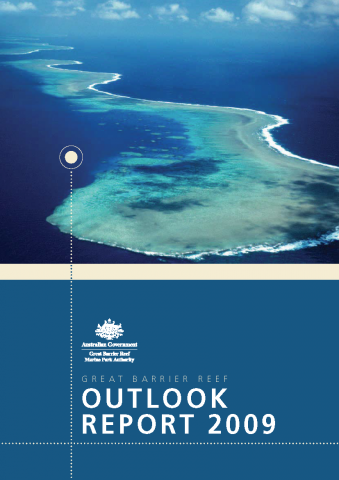 The Great Barrier Reef Outlook Report 2009 is a stock-take of the Great Barrier Reef, its management and its future.
The Great Barrier Reef Outlook Report 2009 is a stock-take of the Great Barrier Reef, its management and its future.
The aim of the Outlook Report is to provide information about:
- The condition of the ecosystem of the Great Barrier Reef Region (including the ecosystem outside the Region where it affects the Region);
• Social and economic factors influencing the Great Barrier Reef ecosystem;
• Management effectiveness of the Great Barrier Reef; and
• Risk-based assessment of the long-term outlook for the Region.
The Report underpins decision-making for the long term protection of the Great Barrier Reef. It was prepared by the GBRMPA based on the best available information and was independently peer reviewed. Many people contributed to the development of the Outlook Report including:
• Australian and Queensland Government agencies
• Leading Great Barrier Reef scientists and researchers
• Industry representatives
• Advisory committees
• Members of regional communities and the public.
The publication of an Outlook Report was a key recommendation of the review of the Great Barrier Reef Marine Park Act 1975. A report is to be prepared every five years and given to the Minister for Sustainability, Environment, Water, Population and Communities for tabling in both houses of the Australian Parliament.
The Great Barrier Reef Outlook Report 2009 is the first of these reports.
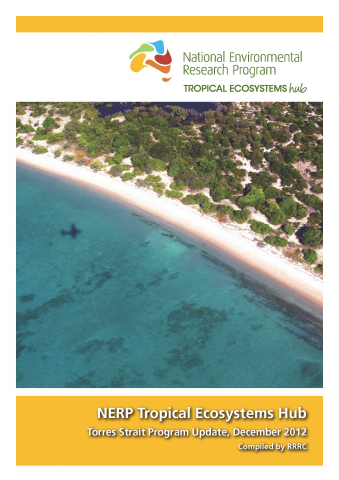 An update brochure of what's going on with the NERP Tropical Ecosystems Hub Torres Strait projects.
An update brochure of what's going on with the NERP Tropical Ecosystems Hub Torres Strait projects.
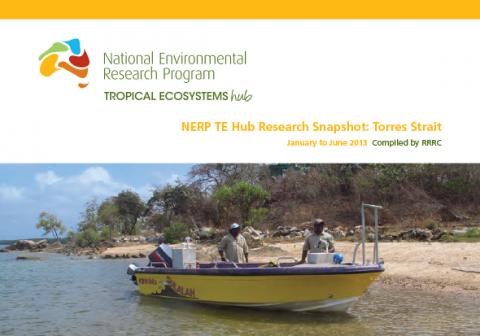 A snapshot of the research progress within the Torres Strait node for January to June 2013.
A snapshot of the research progress within the Torres Strait node for January to June 2013.
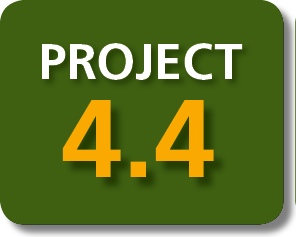
The project team will assess and describe all existing and potential sources of pollution to the Torres Strait marine environment. This will be combined with information on water movement patterns to assess the hazard (and to some degree risk) of these pollutant sources to marine ecosystems and public health. The project will use the results to make recommendations to managers on priority pollutant management in the region, and to design a basic monitoring program for reporting on the status of water quality in the Torres Strait.

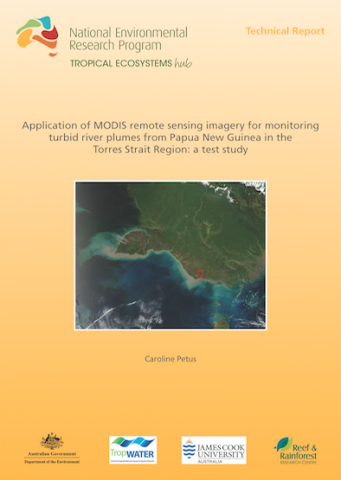
Petus, C. (2013) Application of MODIS remote sensing imagery for monitoring turbid river plumes from Papua New Guinea in the Torres Strait Region: a test study.
© James Cook University
